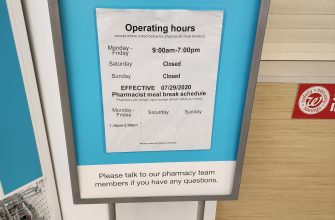Begin with your doctor. They’ll assess your health and determine the appropriate starting dosage, typically 50mg. This ensures a safe and effective experience. Remember, self-medicating is risky; professional guidance is paramount.
Dosage adjustments are common. If 50mg proves insufficient, your physician might increase it to 100mg. Conversely, if side effects arise, a reduction to 25mg may be necessary. Always follow their recommendations carefully.
Frequency matters. Viagra is usually taken as needed, about an hour before sexual activity. Do not exceed one dose per day. Your doctor can discuss any exceptions based on your individual circumstances and response to the medication.
Important Note: This information serves as a general guide, not medical advice. Always consult your doctor before starting or altering any medication regimen. They can address your specific needs and provide personalized guidance. Your health is your responsibility.
- Viagra Dosages: A Comprehensive Guide
- Adjusting Your Dose
- Dosage Frequency
- Important Interactions
- Viagra Dosages: A Quick Reference Table
- Side Effects and Precautions
- Understanding Viagra Dosages and Their Effectiveness
- Factors Influencing Dosage
- Dosage and Response
- Side Effects and Dosage
- Potential Side Effects and Dosage Adjustments
- Dosage Modifications
- Specific Considerations
- Viagra Dosage and Interactions with Other Medications
- Medication Interactions
- Other Important Considerations
- Finding the Right Viagra Dosage: A Collaborative Approach
Viagra Dosages: A Comprehensive Guide
The recommended starting dose of Viagra is 50 mg, taken as needed, about one hour before sexual activity. This dose works well for many men. However, your doctor might adjust this based on your individual needs and response.
Adjusting Your Dose
Your doctor might prescribe a lower dose of 25 mg if you’re over 65, have certain medical conditions (like severe liver or kidney problems), or are taking other medications that interact with Viagra. Conversely, if 50 mg isn’t effective enough, they might increase it to 100 mg. Never exceed the maximum recommended dose of 100 mg in a 24-hour period.
Dosage Frequency
Viagra is usually taken only when needed, not daily. Taking it more frequently than recommended isn’t safer and may increase side effects.
Important Interactions
Several medications can interact with Viagra, potentially leading to dangerous side effects. Be sure to tell your doctor about all medications, supplements, and even herbal remedies you take. This information is crucial for safe medication management.
Viagra Dosages: A Quick Reference Table
| Dosage (mg) | Typical Use |
|---|---|
| 25 | For men over 65, those with certain medical conditions, or those on interacting medications. |
| 50 | Typical starting dose. |
| 100 | For men who don’t respond sufficiently to a 50 mg dose. |
Side Effects and Precautions
Common side effects include headache, facial flushing, nasal congestion, and indigestion. Serious side effects are rare but require immediate medical attention. Consult your doctor immediately if you experience chest pain, sudden vision loss, or prolonged erection (priapism).
This information is for guidance only; always consult your doctor for personalized advice on Viagra dosage and its suitability for your health.
Understanding Viagra Dosages and Their Effectiveness
The standard starting dose of Viagra is 50mg. Doctors often adjust this based on individual response and potential side effects. A lower dose (25mg) might be prescribed if side effects are experienced, while a higher dose (100mg) may be considered if 50mg proves insufficient.
Factors Influencing Dosage
Several factors influence the optimal Viagra dosage. These include age, overall health, other medications taken, and the severity of erectile dysfunction. Liver or kidney impairment may also require dosage adjustments. Always consult your doctor before changing your dosage.
Dosage and Response
Viagra’s effectiveness varies. While most men experience improvement with 50mg, some may need a higher or lower dose for optimal results. It’s important to remember that response can fluctuate; what works well one time might not work as well another. Open communication with your physician is key.
Side Effects and Dosage
Higher doses increase the risk of side effects, such as headaches, flushing, and nasal congestion. If you experience bothersome side effects, discuss reducing your dosage with your doctor. They can help find a balance between achieving the desired effect and minimizing discomfort.
Potential Side Effects and Dosage Adjustments
Always discuss Viagra dosage with your doctor. Common side effects include headache, flushing, nasal congestion, and indigestion. These usually are mild and temporary. Less common, but more serious, side effects include vision changes (blurred vision, blue tint to vision), prolonged erection (priapism), and hearing loss. Seek immediate medical attention if you experience any of these.
Dosage Modifications
Your doctor may adjust your dosage based on your response to the medication and any side effects. The typical starting dose is 50 mg. Your doctor might lower it to 25 mg if you experience side effects. If 50 mg is ineffective, they may increase it to 100 mg. However, the maximum recommended dose is 100 mg within a 24-hour period. Factors influencing dosage include your overall health, other medications you are taking, and the severity of your erectile dysfunction.
Specific Considerations
Certain health conditions can impact Viagra’s effectiveness and safety. These include heart problems, low blood pressure, liver or kidney disease, and blood cell disorders. Also, avoid consuming grapefruit juice, as it can interact with the medication. Open communication with your healthcare provider is key to finding the right dosage and managing any potential side effects. Remember, always follow your doctor’s instructions precisely.
Viagra Dosage and Interactions with Other Medications
Always discuss Viagra dosage with your doctor. Standard starting doses range from 25mg to 50mg, taken as needed, about an hour before sexual activity. Your doctor will adjust the dosage based on your response and health conditions. Never exceed the maximum recommended dose of 100mg in a 24-hour period.
Medication Interactions
Viagra interacts with several medications. Taking nitrates (used for chest pain) with Viagra can cause a dangerous drop in blood pressure. This combination is strictly prohibited. Also, avoid combining Viagra with alpha-blockers (used for high blood pressure or enlarged prostate), as this can also lead to significantly low blood pressure. Consult your physician before using Viagra if you’re taking medications for HIV/AIDS (like ritonavir or indinavir), certain antifungals, or macrolide antibiotics. These medications can increase Viagra’s levels in your blood, potentially causing side effects.
Other Important Considerations
Grapefruit juice can affect the metabolism of Viagra, leading to higher blood levels. Avoid grapefruit and grapefruit juice while using Viagra. If you experience prolonged or painful erections (priapism), seek immediate medical attention. This is a serious side effect requiring prompt treatment. Always inform your doctor about all your medications, including over-the-counter drugs and herbal supplements, before starting Viagra.
Finding the Right Viagra Dosage: A Collaborative Approach
Begin with open communication with your doctor. Discuss your medical history, including any existing conditions and medications.
Your doctor will consider several factors:
- Your age
- Overall health
- Severity of erectile dysfunction
- Response to previous medications (if any)
- Potential drug interactions
The typical starting dose is 50mg. However, your doctor may prescribe a lower (25mg) or higher (100mg) dose depending on your individual needs. Adjustments are common.
Follow your doctor’s instructions precisely. Never increase or decrease your dosage without consulting them. This is crucial for safety and efficacy.
Regular follow-up appointments are key. These allow your doctor to monitor your progress, make necessary adjustments, and address any concerns you may have. Report any side effects immediately.
Consider lifestyle changes. These can significantly impact erectile function. Here are some helpful steps:
- Maintain a healthy weight.
- Exercise regularly.
- Eat a balanced diet.
- Limit alcohol consumption.
- Quit smoking.
- Manage stress effectively.
Remember, finding the right dosage is a process. Be patient, communicate openly with your doctor, and actively participate in your healthcare. A collaborative approach yields the best results.







